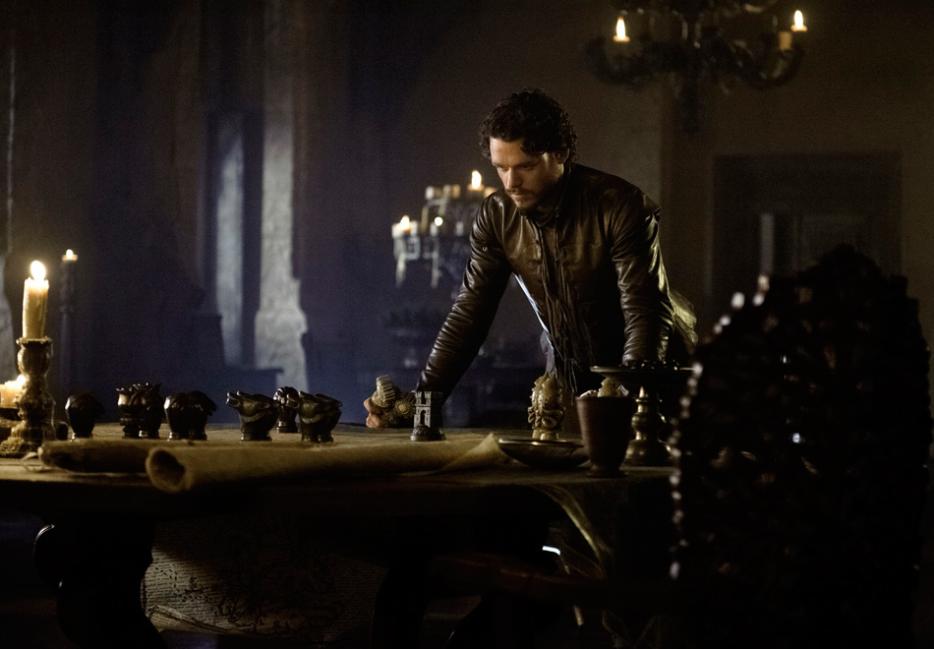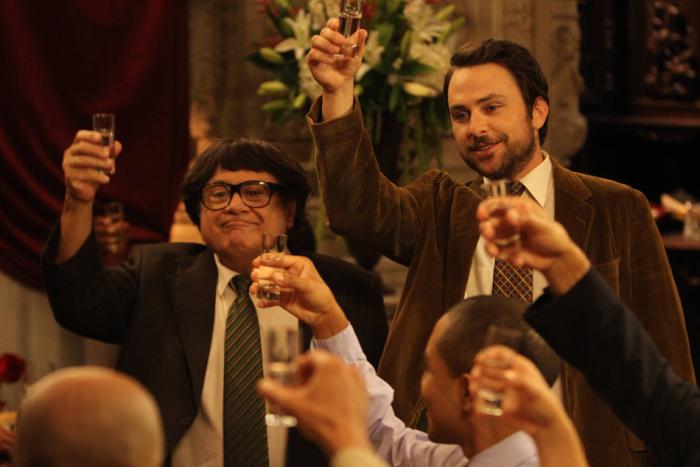“It’s the sort of compliment that you could do without, probably, but it is a compliment nonetheless,” George R. R. Martin said this spring about HBO’s Game of Thrones being the most-pirated TV series of 2012 (it would be again in 2013.) It’s refreshing to see an author take what is objectively the correct view on Internet copyright infringement: Any energy you expend trying to stop it is a waste of time, so try to take it in stride. One way or another, we all live in the world Napster made.
Martin also mentioned that his books are now all global same-day releases, thanks to the Kindle and other ebook vendors. For so many industries, this is something to grieve. And if you’re a particular type of author, it’s responsible for all the evils of modern life.
But if you can move past the first stage of grief, acceptance has some interesting potential: Netflix VP of Content Acquisition Kelly Merryman told a Dutch website last week the TV and movie streaming giant decides on which content licenses to buy with the usual analysis, as well as by looking “at what does well on piracy sites.” (Of course, Netflix itself isn’t immune from piracy, as any Googling of “House of Cards torrent” will show.) You don’t have to like torrent sites, but they can provide some useful market information if your business involves, as Netflix’s does, somehow trying to convince people that they can get everything they normally would through piracy, but legally and for a low price.
For the producers of Game of Thrones, this insight doesn’t immediately matter, because the executives at HBO would apparently rather drink a bucket of paint than sell their content through Netflix. Nor is HBO interested in making its online channel (HBO Go) available to people who don’t subscribe through traditional cable packages—“cord-cutters” are on their own for now, unless they live in Scandinavia. Which is to say, they’ll keep pirating Game of Thrones, and then, if a guilty conscience catches up with them, HBO hopes they’ll buy the box set when it comes out.
Cheap licenses for other people’s work only gets you so far, however. Next weekend we’ll see an early test of Netflix’s development of its own content, as House of Cards is nominated for a handful of Emmys. (Netflix’s other hit this summer, Orange is the New Black, is fantastic, but will have to wait for next year.) In part, Netflix is paying to make its own series because studios have realized that they’re sitting on gold mines and they’ve upped the price of licensing their shows.
This may be the only test we see, because whether Netflix is actually making money on its new shows is a murky question that the company would prefer nobody focus on, and no you can’t see viewership data and stop asking.
Maybe Netflix is just a temporary success and studios will eventually kill it, either by raising prices too high or signing exclusive deals with its competitors. Maybe in ten years it will be built into every TV sold. One way or another, it would be dumb to bet on a future where cable and satellite TV is stronger than it is today. Napster died, but Internet copyright infringement stuck around. Even if Netflix dies, the demand it meets is going to stick around, too.





